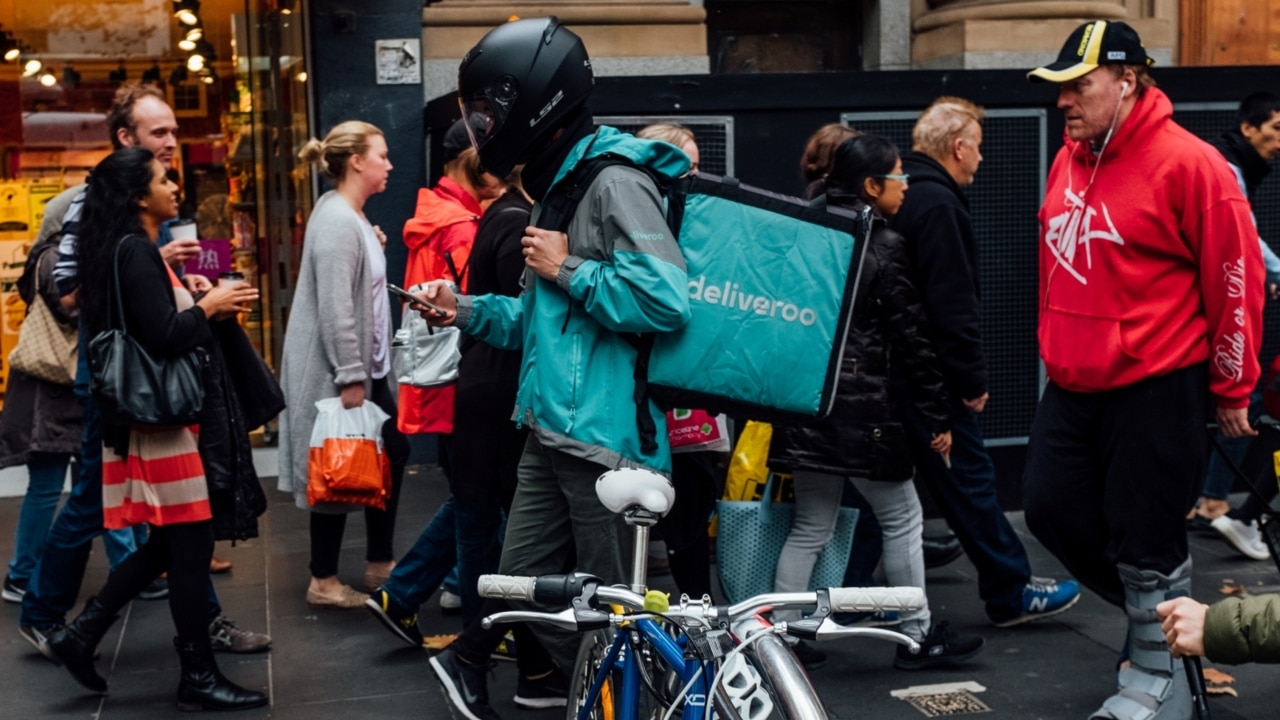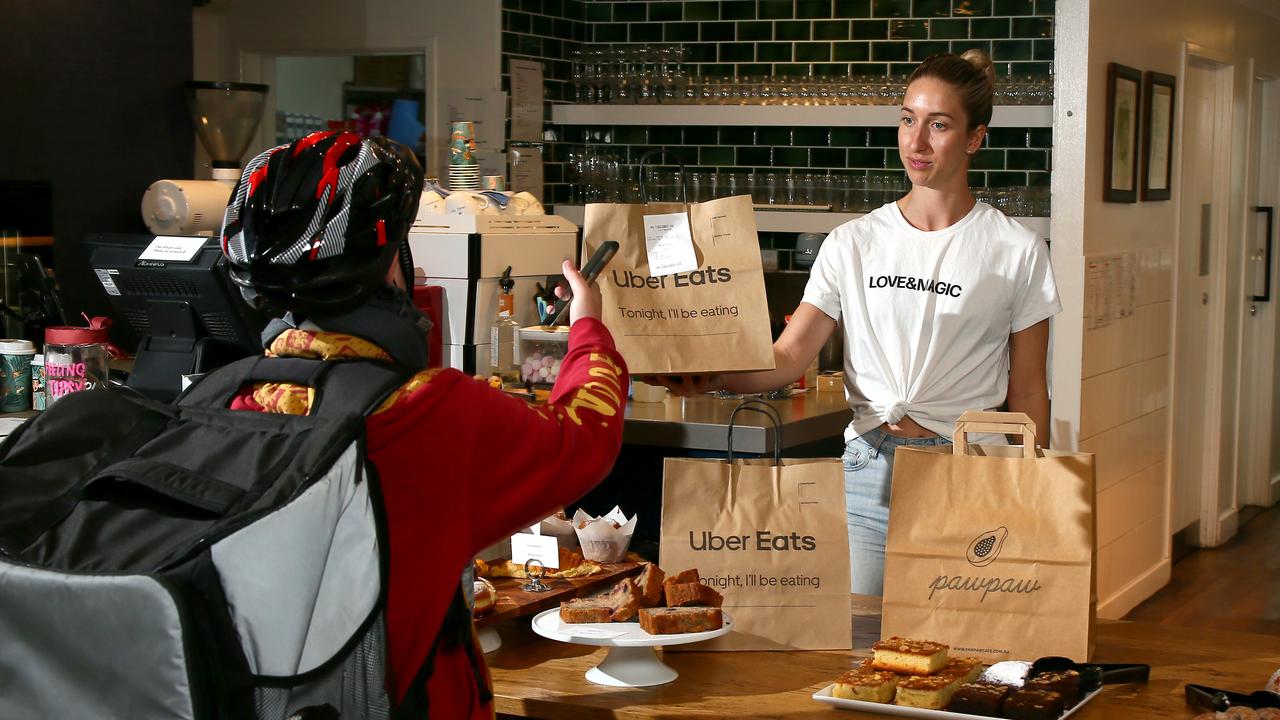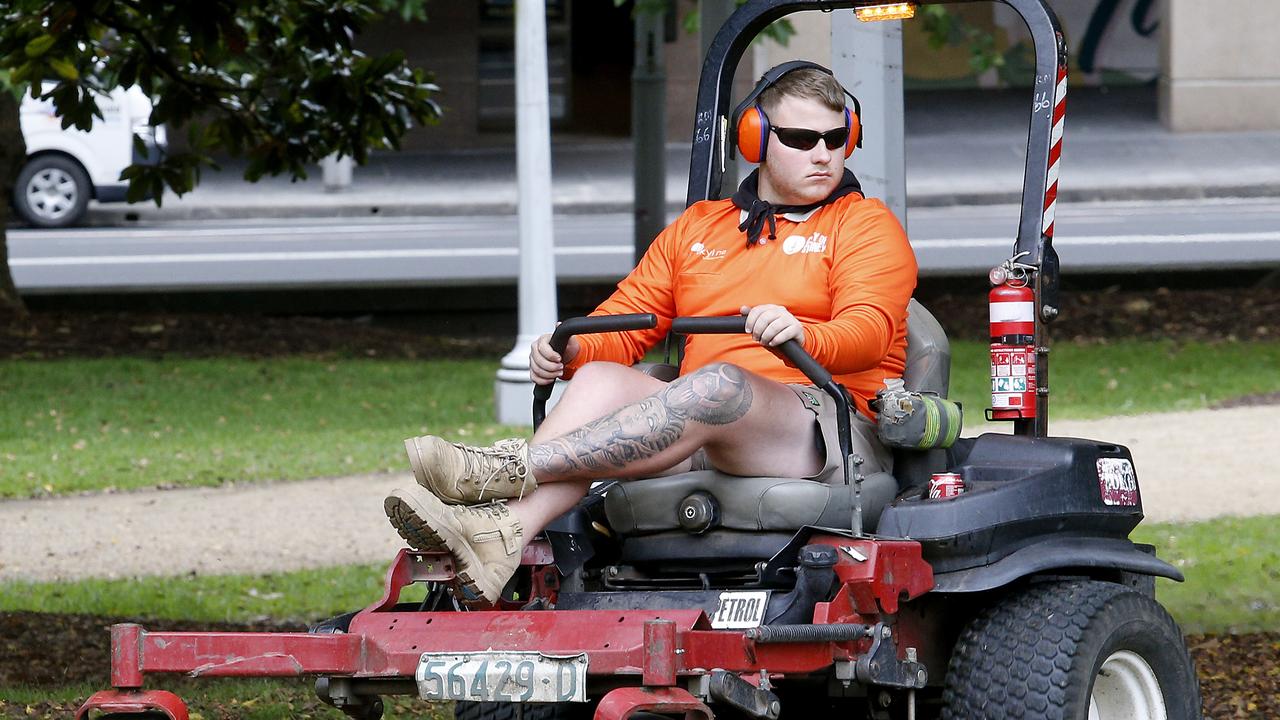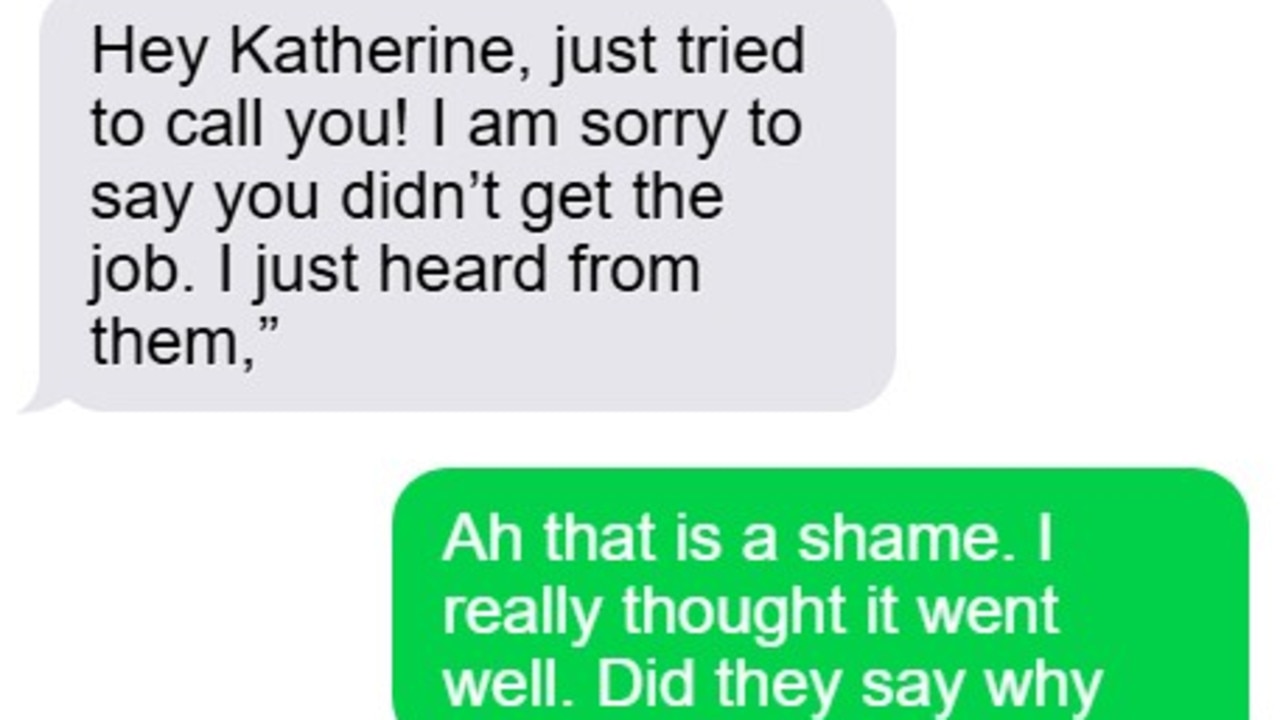UberEats, Deliveroo, Menulog: Survey finds drivers earning $10 an hour, only half have access to PPE
Food delivery drivers are pleading for better pay from platforms like UberEats and Deliveroo so they can afford “to eat good food like our customers”.

Food delivery drivers – dubbed the “heroes of the pandemic” – are pleading for better pay from platforms like UberEats and Deliveroo so they can afford “to eat good food like our customers”.
A new survey conducted by the Transport Workers’ Union has found delivery drivers are earning on average just $10.42 after costs.
Of the more than 200 people polled, nearly nine in 10 said they had noticed a decrease in delivery payments over time, and more than 70 per cent said they were struggling to pay for bills and groceries.
“We are hardly making $10 an hour. Please help us,” one survey respondent said.
One big contributor to lower hourly earnings is the fact that workers aren’t paid for down time waiting for orders.
“Food delivery companies think they are entitled to make drivers wait at restaurants for long periods without pay,” one told the survey.
Eighty-seven per cent said delivery workers, who are treated as independent contractors under Australian law, should have access to the same rights as employees including superannuation, sick leave, penalty rates and a minimum wage.
“(We want) a fair delivery price which allows us to eat good food like our customers,” another respondent said.
The findings also revealed mounting injuries and concerns about coronavirus.
More than one in three reported being injured on the job, with four out of five saying they had received no support from the company.
It comes as Labor prepares to introduce a bill to NSW parliament that would require food delivery workers to be provided with compulsory masks, gloves and sanitiser.
More than half of respondents in the TWU survey said they had not been provided basic personal protective equipment.
Nearly 80 per cent received no sick leave or compensation when forced to self-isolate, and just over a third said they had received additional safety training for COVID-19.

“The rip-off of the heroes of the pandemic has been revealed through this survey,” TWU national secretary Michael Kaine said in a statement.
“Companies like Uber and Deliveroo are continually slashing their pay, forcing food delivery workers to struggle. These workers are fearful about getting injured and they are fearful of contracting COVID. They don’t have enough protections or support.”
Mr Kaine added, “(It’s a) shameful indictment of our system that the workers who allow people to receive food while self-isolating at home and who help restaurants to stay in business are treated in this way.”
Around two-thirds of the survey respondents worked for both UberEats and Deliveroo, while 30 per cent worked for Menulog and DoorDash.
All four platforms have been contacted for comment on the findings.
“The personal safety of delivery partners using the UberEats app has been a critical focus for us during the pandemic crisis,” an UberEats spokeswoman said.
“Since March we have reimbursed partners for, or directly distributed tens of thousands of disinfectants and sanitisers, including free Dettol health and hygiene kits, to driver and delivery-partners. Since July we have also been distributing up to 1.6 million single-use face masks to active driver and delivery partners who request them in NSW and Victoria.”
She added that in March, Uber was the first platform to announce a financial assistance package for drivers and delivery workers if they needed to self-isolate.
“Since 2018, all Uber Eats delivery partners have been insured for on-trip accidents, providing different types of payments if they are injured and unable to work, as well as access to counselling services should something go wrong on a trip,” she said.
“Uber funds this support package with no additional costs to partners, and is the only food delivery or rideshare platform in Australia to provide this type of support.”
A Deliveroo spokeswoman said the company had taken “deliberate steps to protect riders’ earnings in what has been a difficult year”.
“Despite hundreds of applications each week from people wanting to work with Deliveroo, we limit the number of new riders in order to protect the earnings of existing riders,” she said.
“Safety is an absolute priority for the company, and we have out in place numerous measures for riders, such as free personal injury and income protection insurance and public liability insurance. Every rider has been offered free PPE.”
In 2018, a Senate inquiry recommended a broadening of the definition of employee to include gig economy workers.
In NSW, the business model of companies like UberEats and Deliveroo are expected to come under scrutiny as a parliamentary inquiry into the future of work gets under way.
A similar inquiry in Victoria, led by former Fair Work Ombudsman Natalie James, recommended regulation of the sector. The Victorian Government is now seeking feedback on that inquiry’s report.
TWU NSW branch secretary Richard Olsen said the Federal Government had “turned its back on these vulnerable workers and washed its hands of them”.
“We are pleased to see NSW politicians stepping up and preparing to introduce a bill to give workers the protections they need,” he said in a statement.
The union has led a number of legal challenges against the main food delivery platforms, and in 2018 won a landmark case against Foodora, which has since exited the market.
It is currently taking several cases against the gig economy companies, including alleged unfair sackings by Deliveroo and Uber and gross underpayment by Deliveroo.
The TWU said it wrote to all of the major players about concerns for riders during the pandemic, and received a positive response from DoorDash, the US giant which entered the market in September last year.
As a result, DoorDash in July agreed on COVID-19 protections for Australian riders and drivers, including financial assistance for those who contract the virus and are required to self-isolate.




